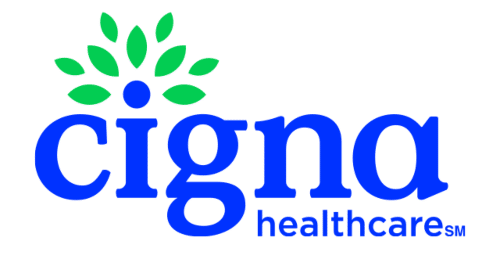
Recover from Mental Health and Behavioral Health Conditions
Dual Diagnosis Treatment Orange County
Serving the Orange County Area
Dual diagnosis or co-occurring disorders are when an individual is suffering from a mental illness and substance use disorder (SUD) at the same time. It is common in people who struggle with SUD to also struggle from another mental health disorder.
The co-occurring disorders can be independent of each other, but often impact each other. It is important both aspects of a dual diagnosis be treated as part of a recovery program in order to get the best results.
According to the National Alliance on Mental Illness (NAMI) about one third of people experiencing mental illness and about half of people who have a severe mental illness also experience SUD or another co occurring disorder. Similarly, about one third of alcohol abusers and one half of drug abusers experience mental illness.
Safe & Sound Treatment is uniquely equipped to treat patients with dual diagnosis in Orange County, otherwise known as co-occurring disorders. Our dual diagnosis treatment program consists of therapy and medication management when appropriate to satisfy the differing needs of individuals. In addition to substance abuse and addiction disorders, we can help patients who also have depression, anxiety, bipolar disorders, PTSD, OCD, and Schizophrenia.
Symptoms
Dual diagnosis is characterized by the occurrence of a mental health and substance abuse disorder at the same time. There are many mixtures of co occurring disorders, therefore there are a great variety of symptoms that may appear.
Here are a few examples of symptoms in someone experiencing substance abuse:
Substance use disorder and addiction symptoms can include:
- Sudden changes in behavior
- Using the drug so often that you feel you need it to function
- Withdrawal symptoms
- Engaging in risky behaviors when under the influence
- Doing things you wouldn't normally do unless under the influence
Mental illness symptoms also vary greatly based on what mental illness you may be suffering from, but here are a few examples:
- Extreme mood changes
- Avoiding friends and isolating
- Suicidal thoughts or suicide attempts
- Trouble thinking and concentrating
In order to diagnose a mental disorder in someone who has the potential to be dual diagnosis, it is important they first are free from drugs and alcohol. Some drugs can give the appearance of a mental health problem, when in fact once the person is sober they no longer struggle with those symptoms. Mental health treatment as its own diagnosis may differ from a dual diagnosis treatment.
Risk Factors
Risk factors often overlap in mental illness and substance use disorder. Genetics and environmental factors can influence the risk associated with both mental health disorders and substance abuse.
Although there is no single cause for mental health concerns, here are common risk factors for mental disorders are:
- Family history of mental illness
- Chemical imbalances in the brain
- The use of drugs or alcohol
- Trauma and stressful experiences
- Chronic medical conditions
In the case of substance misuse occurring before a mental illness, substance use can cause changes in the brain chemistry which may lead to mental illness.
These risk factors can increase your likelihood for developing a substance use disorder:
- Family history of addiction
- Mental health condition
- Lack of family support and involvement
- Taking a highly addictive drug
- Peer pressure
A risk factor for substance abuse can also occur when someone who is struggling with mental illness uses substances to “help” with their mental illness. This is called “self-medicating” and occurs when a mental illness is prevalent first.
How Dual Diagnosis Treatment Works
In order to first begin treating an individual with dual diagnosis disorders, the client must first become sober and detox from the drugs and alcohol they have been consuming through substance abuse treatment or an addiction treatment program. Once the patient has become clean from the drugs and alcohol in their system, the individual will be screened for both substance use disorders and mental health disorders.
It is important that the individual gets therapeutic and medical treatment for both disorders at the same time. Treatment is tailored to the patient in order to best treat both the mental illness they are struggling with as well as the substance abuse.
Treatment of both disorders can include therapy as well as medication management when appropriate.
At Safe & Sound Treatment we use these therapies to assist with co-occurring patients:
- Psychotherapy – Also known as “talk therapy”. A licensed therapist works with a patient in a one-on-one or group setting to apply evidence-based procedures to improve their substance abuse and mental illness.
- Cognitive Behavioral Therapy (CBT) – A type of evidence-based psychotherapy that teaches the individual how to recognize and change behaviors that are detrimental to them.
- Interpersonal therapy – A therapy that teaches individuals how to communicate and express themselves in a healthy way.
- Psychodynamic therapy – A therapy that looks into a client’s past experiences and how it influences their life in the present moment.
- Dialectical Behavior Therapy (DBT) – An evidence-based psychotherapy that teaches individuals skills based on acceptance and change. This can be accomplished through individual sessions, group therapy, and in-the-moment help.
- Acceptance and Commitment Therapy (ACT) – A psychotherapy that takes into account what the individual’s beliefs are and creates a path to make sure that their behaviors and thoughts are in line with their beliefs.
- Eye Movement Desensitization and Reprocessing (EMDR) – A type of psychotherapy that helps individuals heal from traumatizing and disturbing experiences. Rapid Eye Movements are used to help the individual process their memories and transform them.
Get Dual Diagnosis Treatment in Orange County
Safe & Sound Treatment recognizes that each individual is in need of a unique treatment plan that will best fit their needs. Our team of psychiatrists and clinicians will provide the therapy and medication management if appropriate.
We are able to treat people with co-occurring disorders (dual diagnosis). In addition to the treatment of substance use disorder, we can also help treat:
- Depressive Disorder
- Anxiety Disorder
- Bipolar Disorder
- OCD
- Schizophrenia
- PTSD
Our Behavioral Health Center in Orange County is intended to provide a safe environment for those struggling with dual diagnosis (co-occurring disorders). If you or someone you know is struggling with substance use and a mental health disorder, please contact us to learn more about our dual diagnosis treatment center.
Mental Health Programs
Therapeutic Services
Contact Us Today
FAQ's
Treating dual diagnosis is complex because each disorder can interact with and exacerbate the other, requiring integrated treatment that addresses both mental health and substance use issues.
Effective treatments include a combination of psychotherapy, medication management, support groups, and sometimes residential treatment programs that offer comprehensive care.
While individual symptoms may be treated, the most effective approach for dual diagnosis is integrated treatment that addresses both conditions simultaneously to ensure that one does not negatively impact the recovery of the other.
Support is crucial in dual diagnosis treatment, including professional care, support groups, and a strong network of friends and family, to provide encouragement and reduce the risk of relapse.








